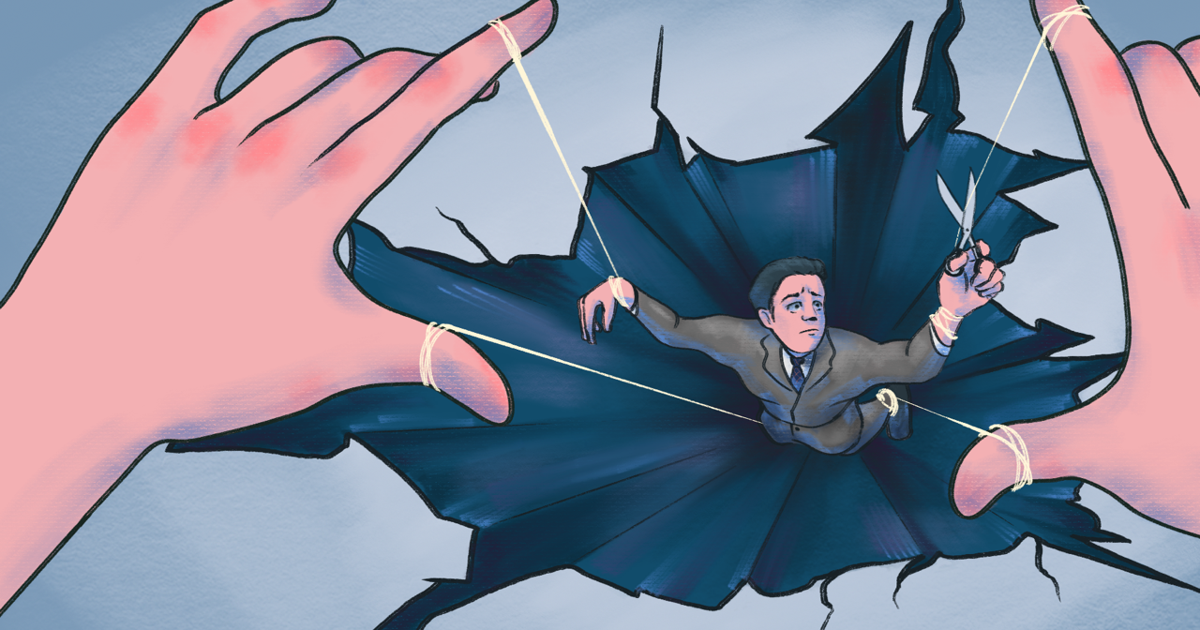In an economy of commodified morality, I have the privilege of majoring in political science and media studies with a minor in Asian American studies and not simultaneously embarking on the law or government track. My experience with observing court cases and interning with the San Francisco Board of Supervisors unveiled a series of injustices that conflict with my nonnegotiable values of respect, dignity and equity. But in tandem with my refusal to perpetuate systems of power inequalities and institutional injustices was a decision to walk away from a high-earning field, compromising the trajectory of my future career and financial stability.
In a power system that prioritizes profit maximization, everything is evaluated in terms of economic gain. Therefore, it is no surprise that our morals have been commodified, making it monetarily expensive to remain loyal to one’s personal ethical philosophy.
Whether you value self-respect, personal health, the environment or political justice, all institutions under capitalism force an inherent evaluation of these beliefs against monetary value. The threat of a low-paying job, a future of financial insecurity and the loss of career networks in the pursuit of ethical majors, careers and protesting equates morals to money, making morality the gum that clogs the gears in a money-making machine.
No institution in a money-hungry system is free of ethical concerns — but the more a job pays you, the more you pay with your morals.
But because the pursuit of an expensive college degree demands a return on investment, UC Berkeley students would naturally pursue college degrees that lead to high-paying jobs, despite the ethical concerns of these majors and career paths.
The top five majors at UC Berkeley are data science, computer science, economics, molecular and cell biology, and electrical engineering and computer sciences. The top five job titles students hold after graduation are software engineer, research assistant, analyst, investment banking analyst and product manager.
On average, data analysts and computer engineers are paid $100,000 per year. Yet data scientists work with computer engineers to create generative AI models that detrimentally affect environments and disproportionately affect lower classes and racial minorities in rural areas, increasing energy costs and decreasing water quality for marginalized communities.
General surgeons, anesthesiologists and cardiologists all make about $400,000 a year. But the investment of time, money and energy into these high-paying programs is an investment not all can afford. Medicine is a classist system that prioritizes those with the economic capital to pursue years of additional schooling and low-paying residency, forcing low-income students to take out student loans to afford the time-consuming and labor-intensive education. Therefore, success in the medical field is largely reserved for those who can afford to delay work for years, as well as an industry that favors those already equipped with the cultural knowledge of medicine granted through class status. The medical field is also saturated in bias and inequality, delivering healthcare to the wealthy few who can afford it and sending the lower classes who can’t afford it into medical debt. Not only is entering medicine a battle against class barriers, but opting into the medical field perpetuates class boundaries that forgo the moral values of equity and justice.
To pursue a major in ethnic studies, sociology, art practice or English — programs with fewer, though not completely free of, ethical concerns — is to forgo a stable job market and a clearly outlined career track. For students taking out loans or who are the first in their families to pursue higher education, going to college is a step toward financial stability; majoring in anything but STEM or business is a financial risk they cannot afford. Careers with fewer ethical concerns, such as teaching in grade schools, pursuing the arts or working in nonprofits, are careers that often do not pay well. In a system that financially rewards those in ethically contested jobs and financially punishes those in morally intact positions, it is expensive to adhere to your moral values.
On campus, famed the Free Speech Movement, defending your morality through protests and activism is costly. Protesting against Israel’s genocide of the Palestinian people has cost 160 students and faculty members their privacy after UC Berkeley sent their names to the federal government in an ongoing investigation of alleged anti-semitism. Undocumented students cannot protest against President Donald Trump’s administration without risking deportation and the revocation of their student visas. While activism poses safety risks, the power dynamics in hiring and recruitment demand adherence to a company’s values, hindering future career opportunities and annihilating professional credibility when your morals do not align with those in power. Not only is defending personal morality contested in a political environment that has stifled free speech, but honoring your ethics also carries financial risks.
From majors to activism, careers to protest, capitalism has warped morality into a commodity. The cost of simply honoring your own moral values can cost you financial stability. The economy of morality is rooted in institutions such as UC Berkeley, which capitalizes on the Free Speech Movement while investing in weapon manufacturers for Israel and big tech companies, and the American capitalist model that the country operates on.
While you may not be able to completely tear down the system that perpetuates the commodification of morality, it is necessary to examine the ethical implications of your career and major choices.
Refuse to use AI. Donate money to a cause of passion. Take classes for fun. Question your professors.
Remaining critical of the capitalist system that continuously commodifies your morals is just as important as protesting for a cause or completely shifting career paths. With every small rebellion, you honor your own ethics in the face of a system that pays to strip them from you.
Ultimately, it is a privilege to honor your moral values. Don’t be docile in your quest for financial stability.

